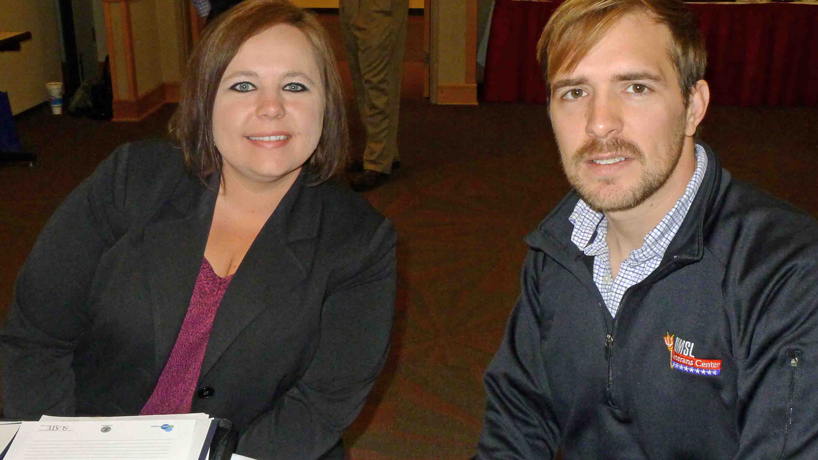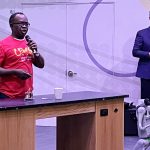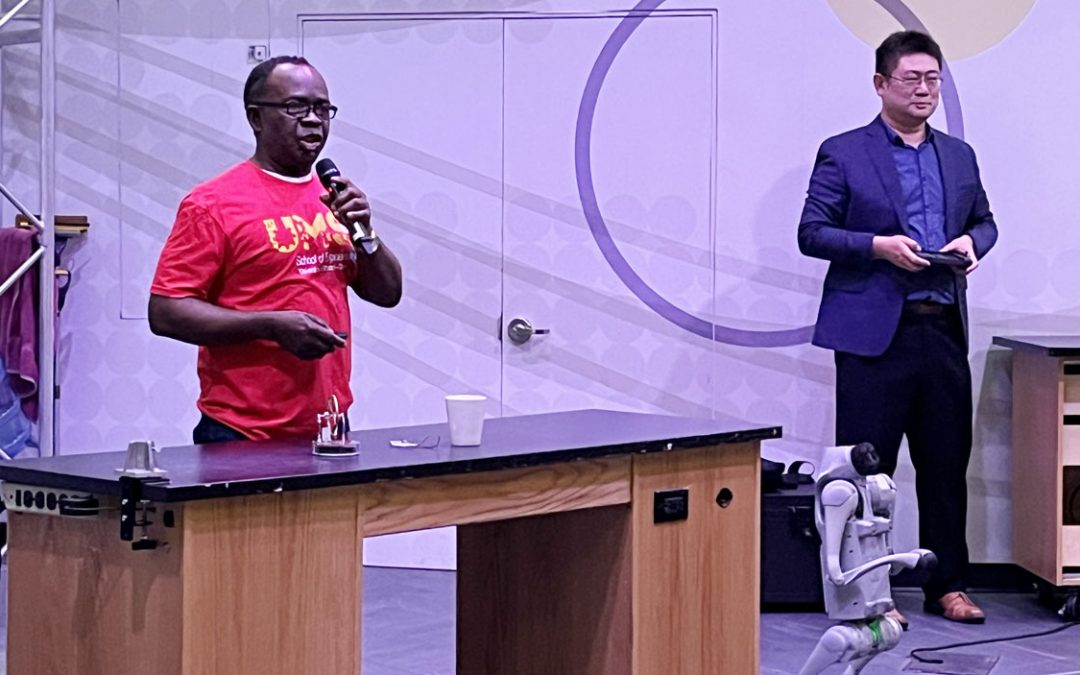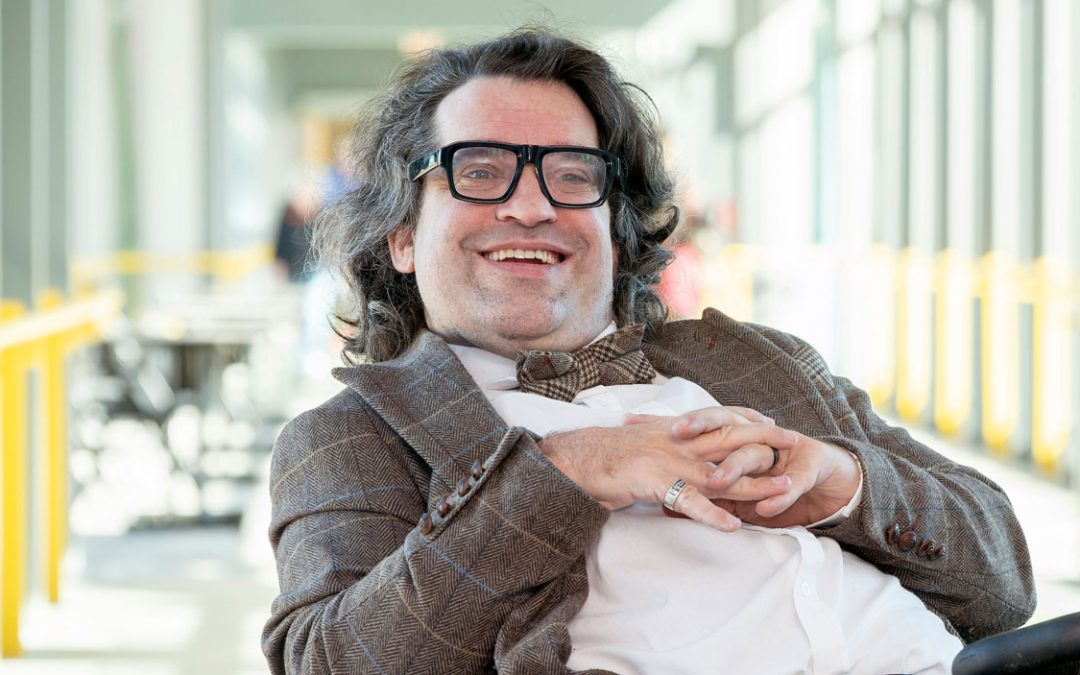
UMSL alumna Danielle Spiekerman, BSBA 2001, a human resources manager for SSM Health Care, discusses hiring veterans with Ryan Barrett, interim director of UMSL’s Veterans Center and a doctoral student in political science, at a Feb. 11 conference at UMSL. The Department of Military and Veterans Studies helped sponsor the event which looked at the current state of veteran hiring initiatives in the region. (Photo by Maureen Zegel)
The civilians came to talk about veterans sourcing – finding veterans, recruiting them, hiring them and retaining them. And the veterans came to talk about all those things. Approximately 30 people gathered at the University of Missouri–St. Louis Feb. 11 to help create the first of what is hoped will be a semi-annual report of the status of military veterans in the St. Louis region.
“We had just the right mix and the right people for this first meeting,” said Jim Craig, chair of the Department of Military and Veterans Studies at UMSL and one of the organizers of the Greater St. Louis Veteran Sourcing Project. “We had people from business, state and local government, universities, veterans services organizations and veterans all talking to one another.”
The Veterans Training and Employment Network and the Work-Ready Employment Assistance Program worked closely with UMSL to organize the morning-long program. The group was invited to discuss the current state of veteran employment in the St. Louis region and share the latest trends in veteran hiring initiatives.
And the number of veterans looking for help with employment issues continues to grow. According to figures from the Missouri Division of Workforce Development, there are 8,556 veterans from the St. Louis region and 141,980 statewide registered with the agency.
Glen Bolden a U.S. Coast Guard veteran wanted those in the room to know that “there are a lot of good people, veterans” looking for jobs. He spoke from experience.
“When I got out of the military I thought I would hit the ground running. I figured. there’s nothing I can’t overcome. That’s what they teach us, right? Well what I discovered is that I didn’t have an exit plan.”
There was talk of a disconnect between the military and civilian cultures and the difficulty of transitioning from an orderly, disciplined way of living to one where you are now in control.
Other veterans shared their struggles with finding employment in a market that seems to be clamoring to “Hire a Vet.”
“With the help of the Veterans Training and Employment Network, I’ve sent out 37 letters looking for a job and I’ve gotten one phone call,” said Charity Cotton, who is due to retire from the U.S. Navy in a few months.
Some employers in the group, however, told a different story.
A business executive with an information technology firm said he has hired 150 people in the last year and believes there needs to be a rethinking of the education and training requirements attached to certain jobs in the marketplace.
Representatives from the casino industry said they are looking to hire people today.
Academics discussed the challenges of translating military training and education into college credit.
Attendees received packets of helpful information for employers including work force-related data on veterans and links to help companies design veterans programs for their businesses. They seemed excited by the dialogue and agreed the gathering was a good first step.
“It’s all about helping organizations do a better job of hiring and getting the right veteran in the right job,” Craig said. “From this conference, we plan to publish a white paper with labor statistics for the region. We’ll distribute it, get feedback and regularly create status reports on our veterans.















